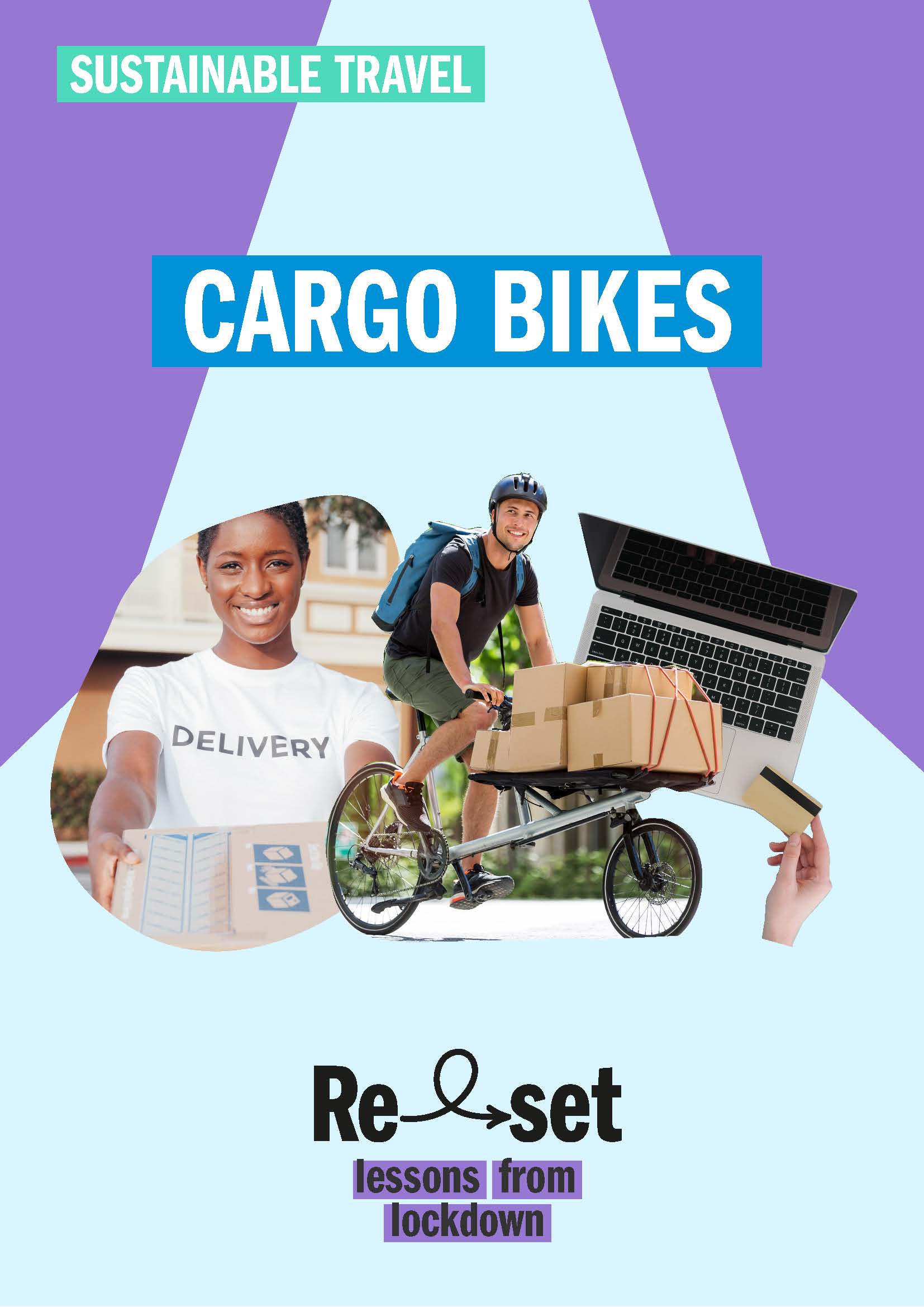Cargo bikes are delivering serious environmental savings and making streets more people-friendly. An electric cargo bike in London can deliver 60% faster than vans in busy urban centres, achieving higher average speeds, and successfully and safely delivering ten parcels in an hour to a polluting van’s six. Alongside the environmental benefits are the financial gains. Cargo bikes’ ability to use both roads and cycling infrastructure means that journey times can be cut by between 25% to 50%.
As home deliveries have skyrocketed since the Covid lockdowns, we urgently need to put on the brakes and re-evaluate how goods move through our cities. E-cargo bikes are one solution that we can all get behind. They’re often faster than cars or vans, can improve our mental and physical health, and reduce our carbon footprint.
Hirra Khan Adeogun, Car Free Cities
As the streetscape has changed in response to the global pandemic, the way in which we move around has been transformed. The pandemic has provided the incentive to pivot away from the van and towards the cargo bike; but we need to build on these trends to ensure that the cargo bike is here to stay.

This story is part of the Reset series – a collection of short downloadable stories that look in more detail at over consumption and unnecessary travel. They consider some of the key messages and solutions that have become apparent during the pandemic that could help us make the rapid transition to a more sustainable future.
This guide has been made possible by the support of ClimateWorks Foundation.
 The pandemic caused huge disruption to global supply chains. As the world was told to stay at home, people had to turn to the world of e-commerce to provide them with many of the necessities they needed while lockdown lasted, from food to medical supplies. On cue, the cargo bike arrived – in both its electrically assisted and purely pedal powered versions – to clean up and de-carbonise last mile logistics.
The pandemic caused huge disruption to global supply chains. As the world was told to stay at home, people had to turn to the world of e-commerce to provide them with many of the necessities they needed while lockdown lasted, from food to medical supplies. On cue, the cargo bike arrived – in both its electrically assisted and purely pedal powered versions – to clean up and de-carbonise last mile logistics.